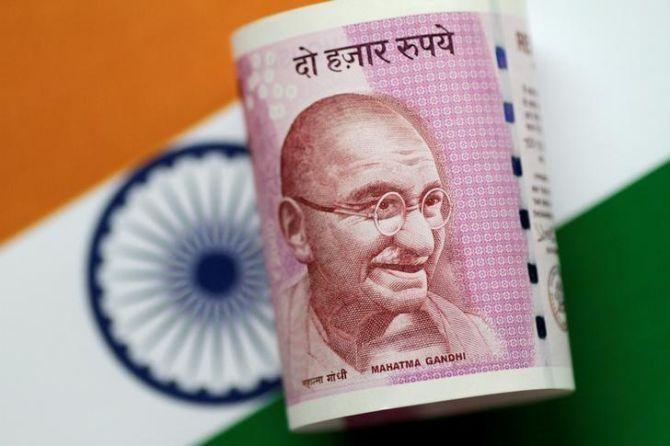The volume in the anonymous trading platform, NDS-OM, was Rs 7,210 crore - less than half the normal volume, but not as bad as the start of the day indicated.

India’s bond market saw no trading in the first 30 minutes on Tuesday, as traders worked from home amid expectations of an imminent rate cut.
The volume in the anonymous trading platform, NDS-OM, was Rs 7,210 crore - less than half the normal volume, but not as bad as the start of the day indicated.
The trading volume picked up in the latter part of the day as the finance minister held a video-conference on steps to be taken to fight the economic slowdown.
Besides, a Rs 15,000 crore purchase of bonds from the secondary market by the Reserve Bank of India (RBI) helped lift the sentiment.
The benchmark 10-year bond saw trading volume of Rs 1,325 crore, and was the most traded one.
The market now expects rate cuts of at least 50 basis points, and industry associations have called for a cut of as much as 150 basis points, as the number of coronavirus cases is rising in India and globally, bringing economic activities to a halt.
Some expect India’s gross domestic product (GDP) growth to fall to 3.5 per cent this financial year because of an ongoing slowdown.
Bond dealers say the fall in volume is because of various reasons.
Harihar Krishnamurthy, head of treasury of First Rand Bank, explained that traders were working from home, which meant they were just doing bare minimum trades to cover their positions.
This would entail buying or selling bonds to maintain the statutory liquidity ratio (SLR), covering call money obligations, etc.
While trading from home, one cannot take calls even as trading can be done through web-based platforms.
A bank treasury has a front office, mid-office and back office.
None of those is working efficiently and, as such, nobody wants to pile up work.
Trading-related activities have to be settled on the same day with regulators.
“The rate cut expectation is also playing a big part.
"The market doesn’t want to part with bonds ahead of a possible rate cut,” said Krishnamurthy.
As rates are cut, the bond yields will dip. And therefore, the prices of bonds will rise.
Selling a bond before a rate cut would mean foregoing treasury profits.
But there is ample liquidity available in the system.
The volume in the triparty repo platform, TREPS, where corporates and non-banks trade their surplus liquidity, has surged to Rs 2 trillion as companies avoided investments to stay liquid.
The RBI is also infusing enough liquidity through special repo of Rs 1 trillion, and by conducting Rs 40,000 crore of bond purchases from the secondary market in March.
But the abundant liquidity may not be enough to lure bond traders back.
One such open market operations (OMO) happened on Tuesday where the RBI infused Rs 15,000 crore of liquidity in the system.
“Abundant banking system liquidity is necessary, but not sufficient, when overall activities are facing a sudden stop,” said Soumyajit Niyogi, associate director at India Ratings and Research.
“Participants in the financial markets are equally uncertain about the very near future as others in the society.
"Therefore, restoring normalcy in any market is challenging without targeted intervention by the central bank, or respective authorities,” Niyogi said.
Similarly, trading volume in the currency market has also fallen to less than a third as traders cover only the essential parts to meet clients’ hedging needs.
The 10-year bond closed at 6.30 per cent.
Photograph: Thomas White/Reuters










